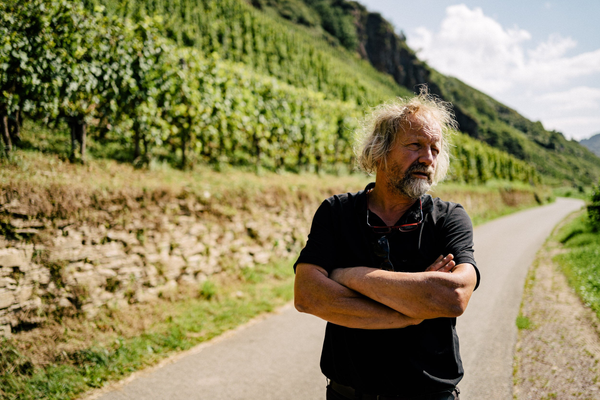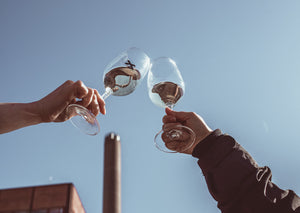
Clemens Busch
The 15-hectare family farm of Clemens Busch, founded in 1802 in Pünderich, on the border of the Middle and Lower Mosel, underwent the last generational change in 1986. The husband and wife couple Clemens and Rita, together with their son Johannes, are responsible for the production of the wines, which are among the first certified organic wines in the region. The couple's second son, Florian, makes wines with his wife in the south of France. In addition, the family's seven goats keep their huts above the barns, although they are not allowed in between the vines themselves.
Clemens Busch, who is focused purely on the production of the Riesling grape, produces classic Mosel Rieslings on very different plots. The soils and microclimates vary in the five different vineyards, and the terroir has a significant effect on the final outcome of the wines. There are a total of 17 hectares of shelters, of which 3-4 hectares are located on the plain and the rest on the slopes. The terroir can really be felt and tasted in the wines of Clemens Busch, who has been part of the VDP since 2007. The colors of the bottle caps tell about the soils of the plots: a blue cap refers to Devonian slate, red to red slate and gray to gray slate. Most of the grapes come from the Marienburg vineyard in the village of Pünderich, which is protected from cool winds by its amphitheater-like shape.
More than 25 years of experience in organic production has shown that the chosen direction has been the right one. The diversity of the shelters helps maintain the balance of the local ecosystem. Since no chemical pesticides are used, the soil is healthy and helps the vines to grow particularly ripe grapes, from which the pressed grape juice is intense and mineral. With the help of careful vineyard work and several rounds of harvesting, it is ensured that only first-class and physiologically ripe grapes end up in the wines.
Natural and careful work continues in the basement. The grapes are pressed gently and the skins are allowed to extract for a while in a cool place, so that the grape juice becomes clear naturally. When the temperature is raised, the alcoholic fermentation begins spontaneously with the help of natural yeasts without the use of pied de cuve. At most, alcoholic fermentation lasts up to 12 months without manipulation. Wines are aged on yeast lees in steel tanks and 1000-liter oak barrels, the youngest of which are 50 years old. Fines are often blended to increase the fruitiness and richness of the wines. As a rule, the style of the house is to produce completely dry Rieslings. Sometimes the natural yeast strains may stop working before all the sugar from the grapes has been converted into alcohol. Sulfur dioxide is added a little after fermentation and during bottling.
Falstaff WeinGuide Deutschland 2020 gave the farm The Collection of the Year Award and rewarded many of their wines with 96-98 points. Clemens Busch is part of the VDP organization.
The farm's annual production is around 120,000 bottles. The producer has a respect-BIODYN certificate.



